Have you ever wondered how important it is to stay compliant as a beneficiary? In today's fast-paced world, ensuring that all necessary checks are in place can make a significant difference in receiving the benefits you're entitled to. This letter template for beneficiary compliance check acknowledgment not only simplifies the process but also fosters transparency and accountability. Stick around to discover the key elements you need to include to ensure your acknowledgment is effective!
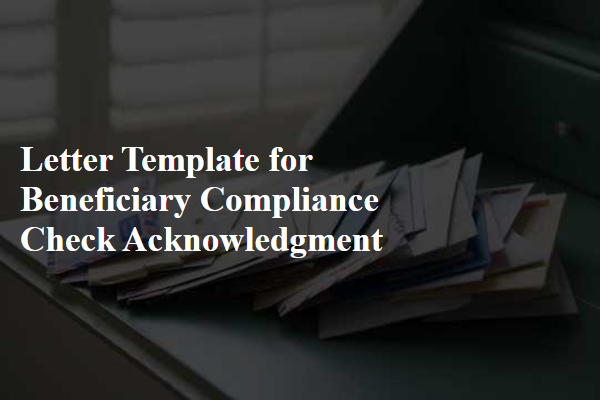
Relevant beneficiary identification details
In the context of compliance checks, accurate beneficiary identification is crucial for ensuring adherence to guidelines and regulations. Essential details include the beneficiary's full name, associated account number, and unique identification number, such as a social security number or tax identification number, which ensures proper record-keeping. Other pertinent information includes the beneficiary's residential address, contact information, and date of birth, which helps in confirming identity and mitigating risks of fraud. Additionally, the status of any required documentation or verification processes can significantly influence compliance outcomes, making thorough checks essential for organizational integrity.
Clear statement of compliance requirements
Beneficiary compliance checks serve to ensure that organizations and individuals receiving funds adhere to established guidelines and regulations. Compliance requirements often include financial accountability, accurate reporting, and adherence to specific program goals outlined by funding entities. For instance, federal grants might necessitate compliance with the Uniform Guidance regulations, while private foundations may have unique stipulations based on their mission objectives. Beneficiaries must maintain precise documentation, including expense records and progress reports, to demonstrate alignment with these criteria. Regular audits and reviews could occur, particularly in programs involving large sums of money or high public scrutiny. Adhering to these compliance requirements is critical for maintaining eligibility for future funding and fostering transparency in organizational practices.
Confirmation of receipt of provided documentation
Acknowledgment of receipt is essential in beneficiary compliance checks, particularly for documentation submitted to agencies like the Social Security Administration. Documentation can include proof of income, identity verification, and residency status. The compliance process ensures that beneficiaries meet eligibility requirements, typically outlined in federal regulations. Proper formats and record-keeping are crucial, with agencies often providing confirmation letters detailing received documents along with submission dates. Timely acknowledgment assists in maintaining transparency and upholding accountability within the benefits distribution system.
Contact information for further assistance
Beneficiary compliance checks ensure adherence to program guidelines and requirements. Beneficiaries can refer to their compliance documentation, which may include eligibility criteria, progress reports, and renewal processes. Contact information is essential for further assistance, including administration phone numbers and email addresses. For example, the main helpline number, 1-800-555-0199, is available for inquiries from 8 AM to 6 PM EST on weekdays. Additionally, beneficiaries can reach out via email at support@program.org for detailed questions or concerns. Having accessible contact resources promotes efficient communication, ensuring beneficiaries remain informed and compliant.
Closing with acknowledgment of cooperation
Beneficiary compliance checks are critical in ensuring adherence to regulatory requirements within social assistance programs, such as those managed by government agencies like the Department of Health and Human Services. These compliance checks evaluate various aspects, including documentation accuracy, eligibility criteria fulfillment, and ongoing program engagement. Cooperation from beneficiaries is essential during this process, as timely provision of requested information enhances efficiency and integrity. Acknowledgment of cooperation strengthens the partnership between the agency and beneficiaries, fostering a transparent and supportive environment that promotes mutual trust and accountability in the administration of social services.

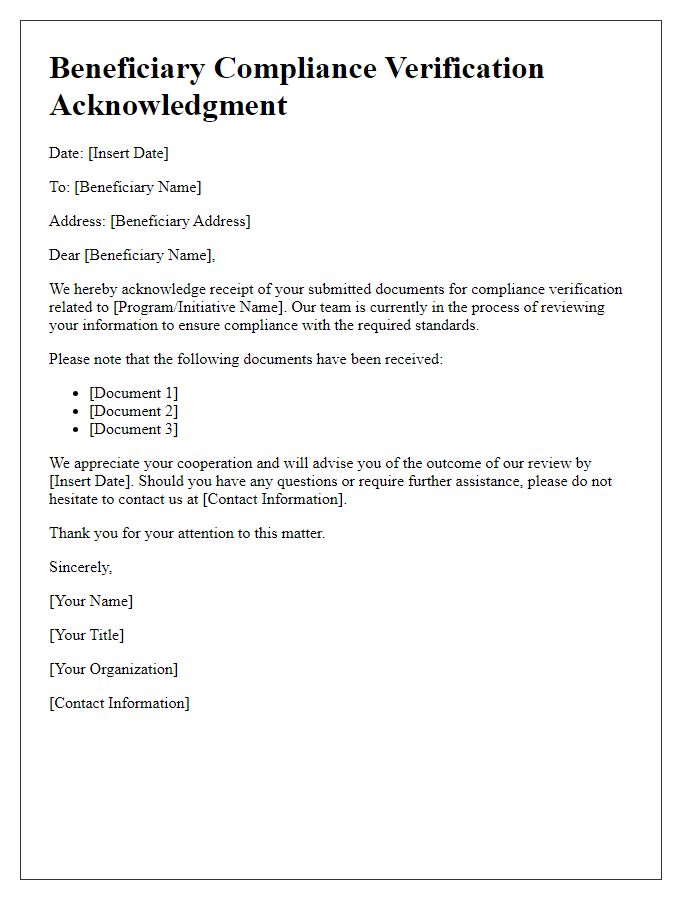
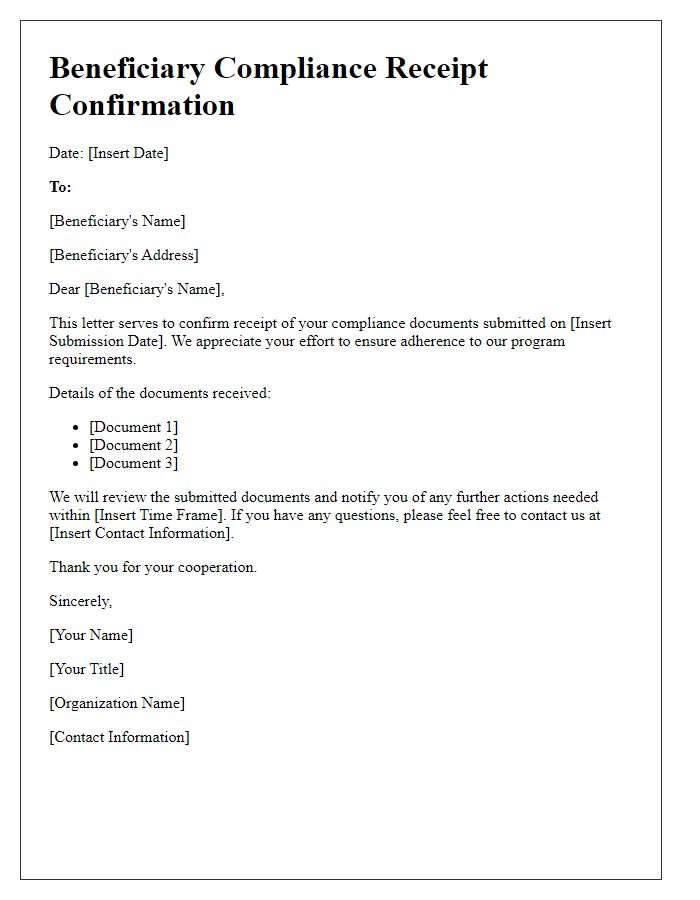
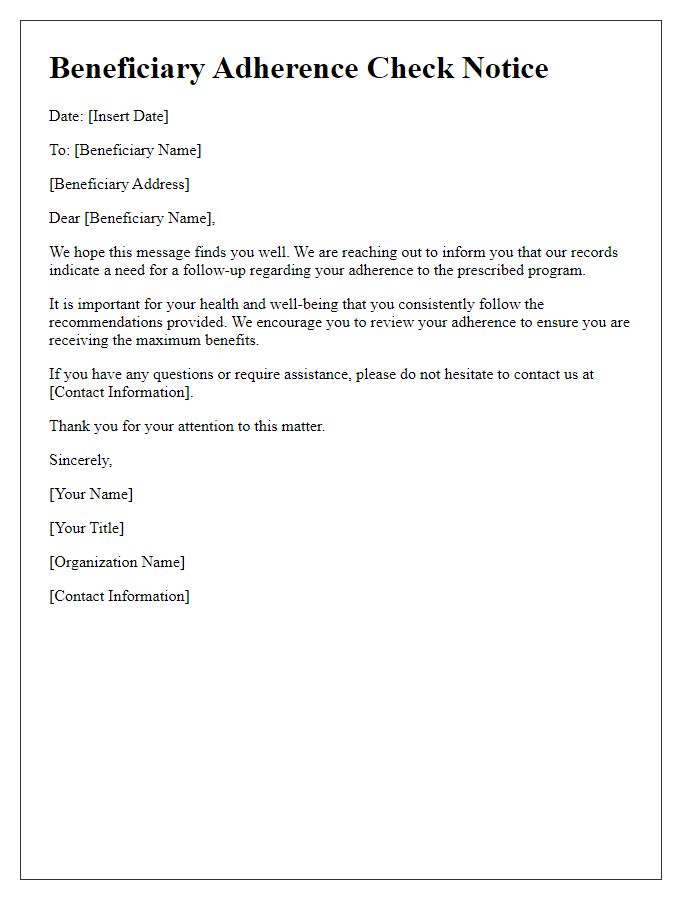
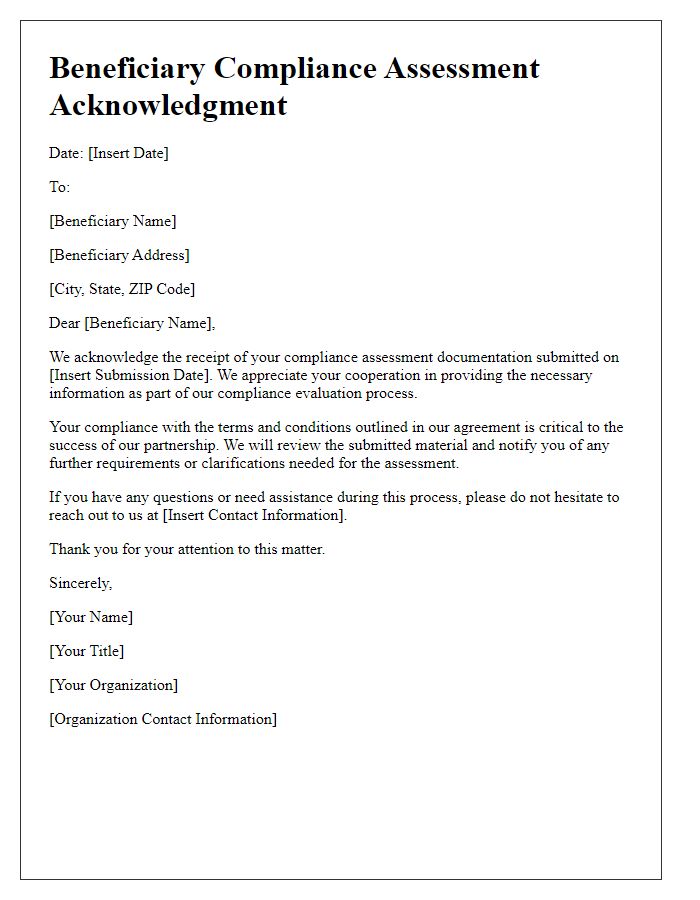
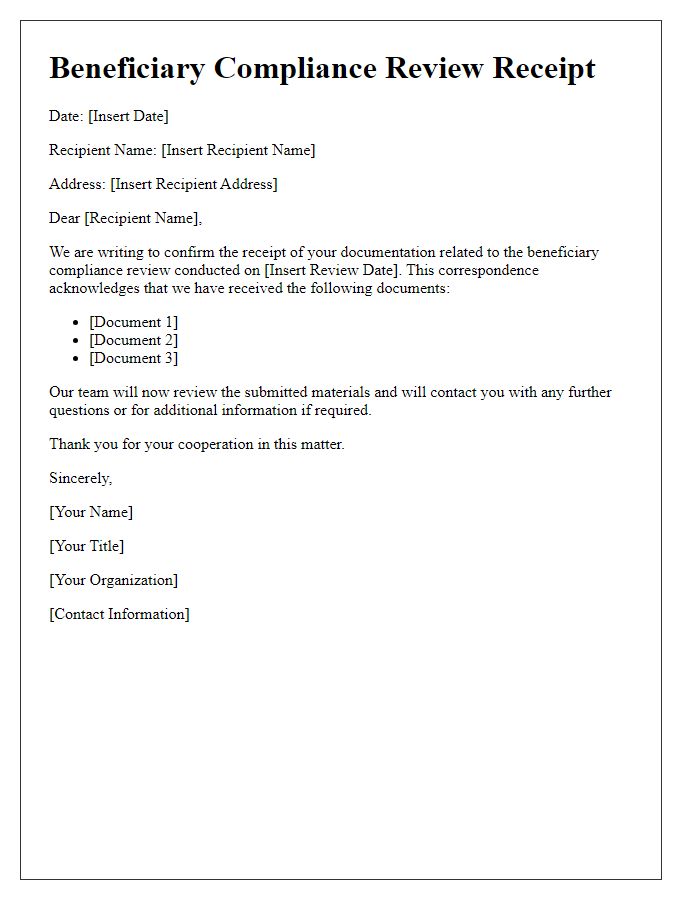
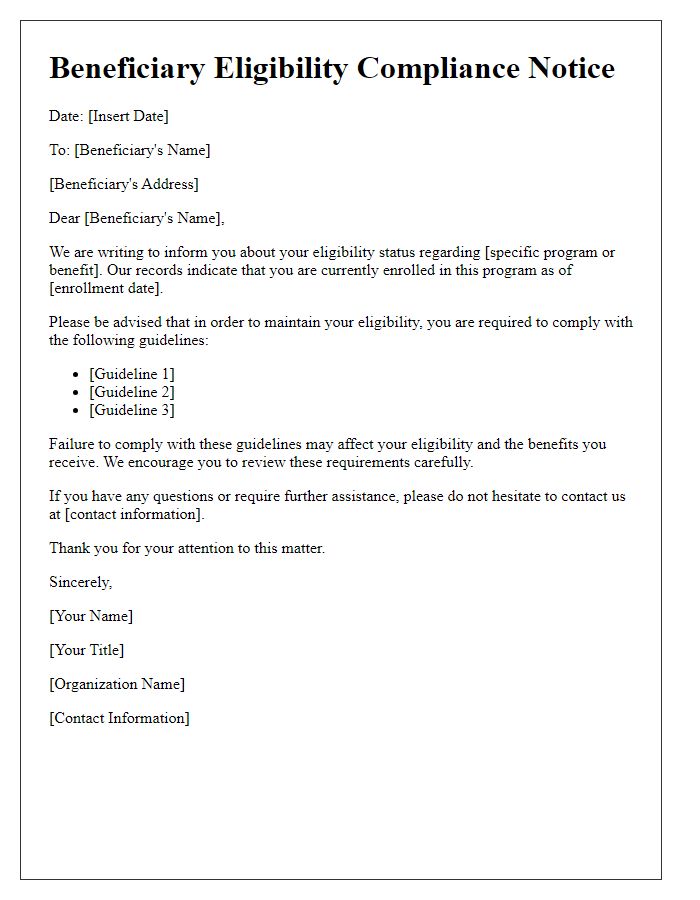
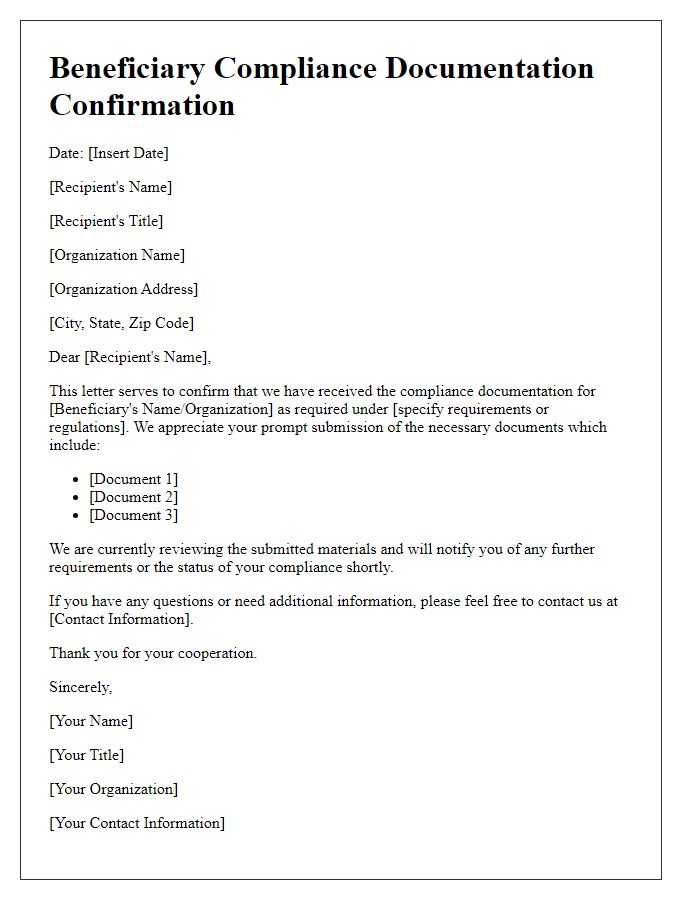
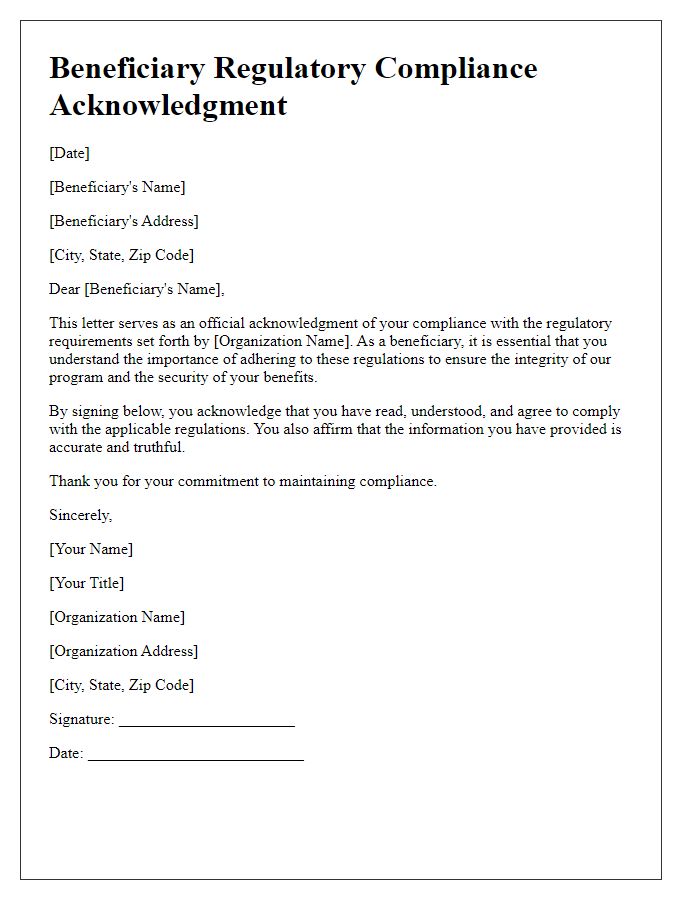
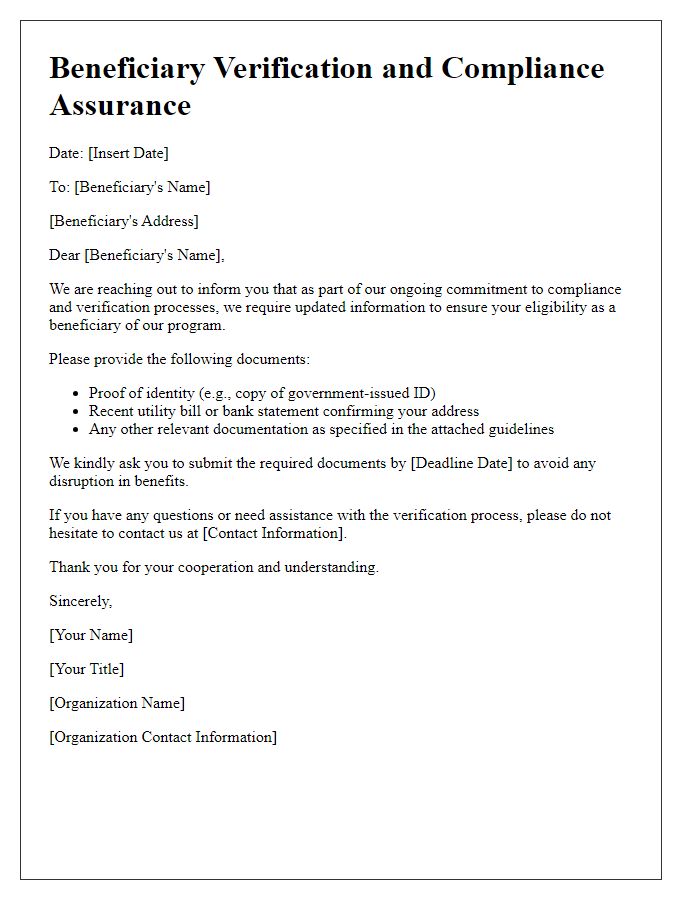
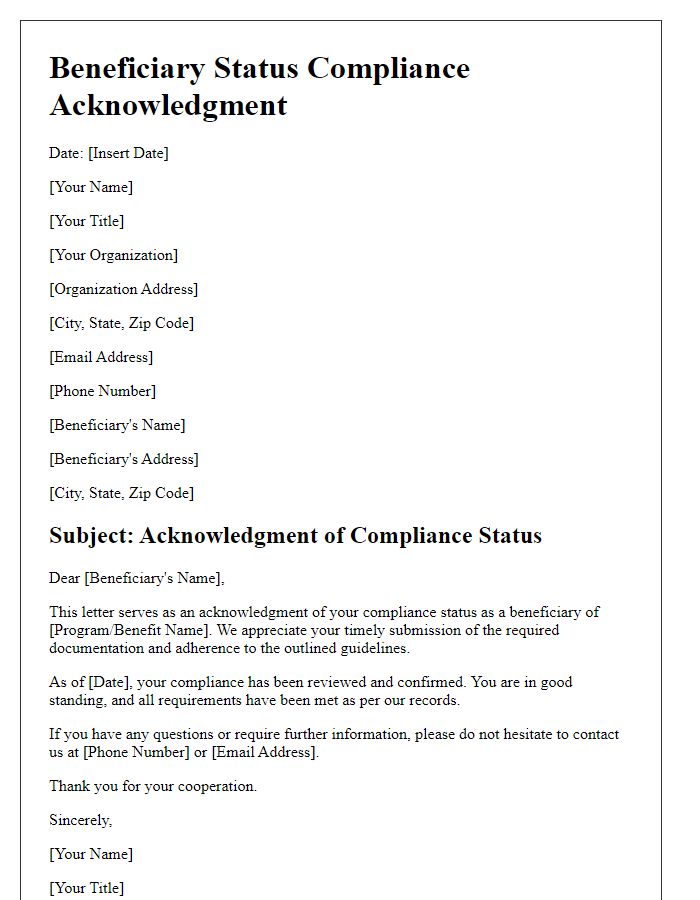

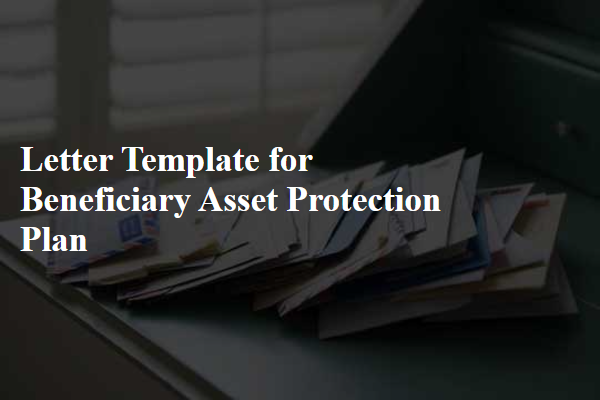
Comments